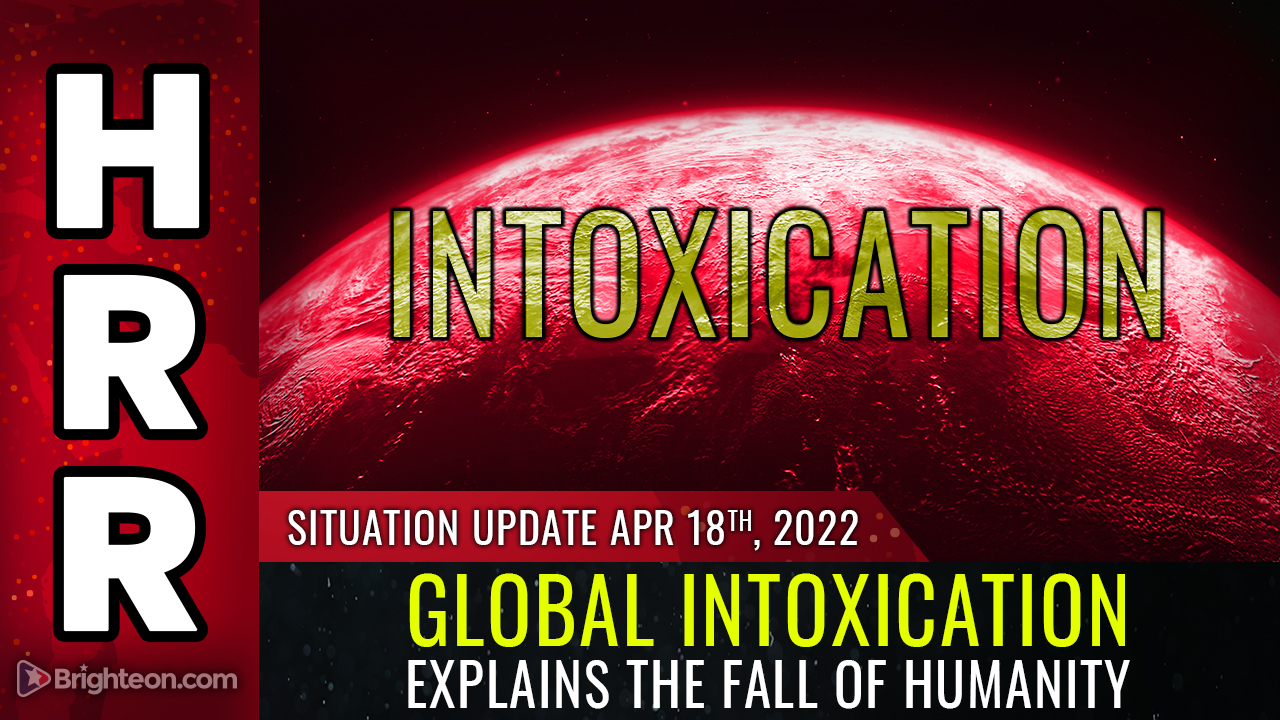High blood sugar levels could be placing you at risk of dementia, memory loss, and cognitive decline
02/28/2019 / By Rhonda Johansson

A startling study published in the New England Journal of Medicine reveals a link between high blood sugar levels and an increased risk for dementia, even in people who are not diabetic. Authors of the study speculate that having higher blood sugar levels can increase the risk for vascular disease, which, in turn, contributes to a higher likelihood of cognitive deterioration. There may also be other metabolic factors that come into play, such as insulin resistance affecting brain cells.
For the purposes of the study, 2,067 participants (839 men and 1,228 women) from the Adult Changes in Thought study were analyzed and stratified according to diabetes status (232 participants had diabetes, while 1,835 did not), and then adjusted for other variables such as age, sex, educational level, and level of exercise. During a median follow-up of 6.8 years, dementia developed in 524 participants (74 who had diabetes and 450 who did not). Among the participants who did not have diabetes, having higher-than-average blood sugar levels within the preceding five years was related to a statistically increased risk of dementia.
Researchers found that elevated blood sugar levels at any level increased the risk of dementia; however, the higher the number, the greater the risk of damage to the brain.
Dealing with high blood glucose
Blood sugar is considered as too high if it is higher than 130 mg/dl before a meal or higher than 180 mg/dl two hours after one. People with these levels are diagnosed to have hyperglycemia and it is the defining characteristic of all types of diabetes. The most common symptoms of hyperglycemia are: excessive urination (polyuria), excessive thirst (polydipsia), and excessive hunger (polyphagia).
Drugs that are used to manage blood sugar levels are often associated with adverse side-effects. Fortunately there are natural steps you can take to lower your blood sugar levels.
- Exercise regularly — Losing weight can help increase insulin sensitivity. This means that your cells are better able to use the available sugar in your body.
- Increase your fiber intake — Fiber slows down sugar absorption, promoting a more gradual rise in blood sugar levels. Soluble fiber, in particular, has been shown to impact blood sugar levels.
- Reduce carb intake — Carbohydrates may cause blood sugar spikes. (Related: Study confirms a very low-carb diet can help manage Type 1 diabetes.)
- Limit how much you eat — As with the first point of exercising regularly, regulating your calorie intake can lead to weight loss, which will promote healthy blood sugar levels. Keeping a healthy weight has also been found to reduce the risk of developing Type 2 diabetes.
- Stay hydrated — Drink lots of water to prevent dehydration. Doing so will also help your kidneys flush out excess blood sugar through urine.
- Be aware of the glycemic index of foods — The glycemic index was developed to assess your body’s blood sugar response to foods that contain carbohydrates. To prevent sudden spikes in your blood sugar levels, try to eat foods that have a low glycemic index.
- Relax — Stress can affect blood sugar. Hormones such as cortisol and glucagon are secreted during moments of stress. These hormones can cause your blood sugar levels to go up.
- Get enough rest — Good, quality sleep is necessary for optimum health. Poor sleeping habits can reduce insulin sensitivity, increase appetite, and promote weight gain. Further, those who are sleep deprived typically eat unhealthy food in the middle of the night, contributing to their insomnia.
- Supplement with magnesium and chromium — Hyperglycemia and diabetes are both linked to micronutrient deficiencies, particularly in the minerals chromium and magnesium. How these two affect blood sugar levels is still not yet fully understood but emerging research suggests that both play a role in how your body processes carbohydrates.
Lastly, remember that it is extremely important that you monitor your blood sugar levels regularly. Measuring them on a regular basis will also help you control them.
Sources include:
Submit a correction >>
Tagged Under:
blood glucose, bloodsugar, Brain, brain health, cognitive decline, cognitive deterioration, dementia, diabetes, pre-diabetes, prevent diabetes, prevention, research, sugar, vascular disease
This article may contain statements that reflect the opinion of the author
RECENT NEWS & ARTICLES
StopEatingPoison.com is a fact-based public education website published by Stop Eating Poison Features, LLC.
All content copyright © 2018 by Stop Eating Poison Features, LLC.
Contact Us with Tips or Corrections
All trademarks, registered trademarks and servicemarks mentioned on this site are the property of their respective owners.





















